Finish Line Chasers: Terenzo Bozzone
Triathlon champion Terenzo Bozzone marks 20 years of competing, sharing his journey from an energetic child to a dedicated athlete, overcoming adversities, and remaining passionate about the sport.

Triathlon champion Terenzo Bozzone marks 20 years of competing, sharing his journey from an energetic child to a dedicated athlete, overcoming adversities, and remaining passionate about the sport.
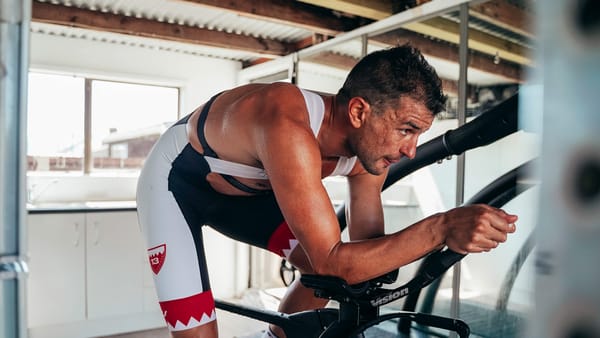
Twenty years is a long time to be doing the same job, yet this is exactly what Terenzo Bozzone has been doing. This year sees Terenzo celebrate twenty years competing at the top of the sport of triathlon, a sport which has given him some very big highs and some even bigger lows.
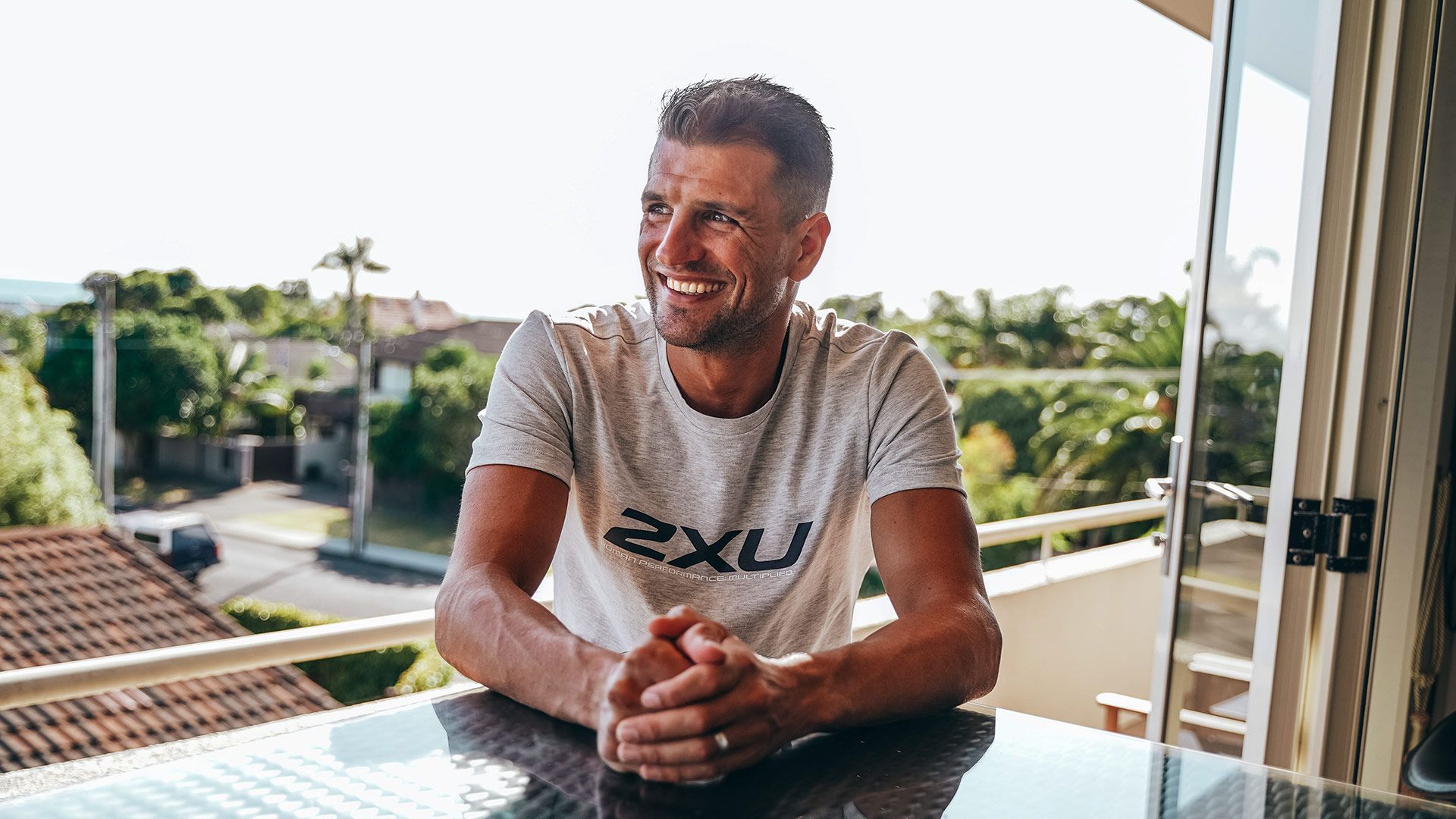
With so many of those lows in the last two years, you would think Terenzo may start to slow down. But, with a renewed drive, his excitement for the sport is greater than it was competing at his very first race in 2000.
I often had too much energy and sport was a great way to channel that [laughs]. I never wanted to come across as arrogant, but I knew with the work ethic I had, I could be quietly confident. If things went my way in races, a positive outcome was possible.
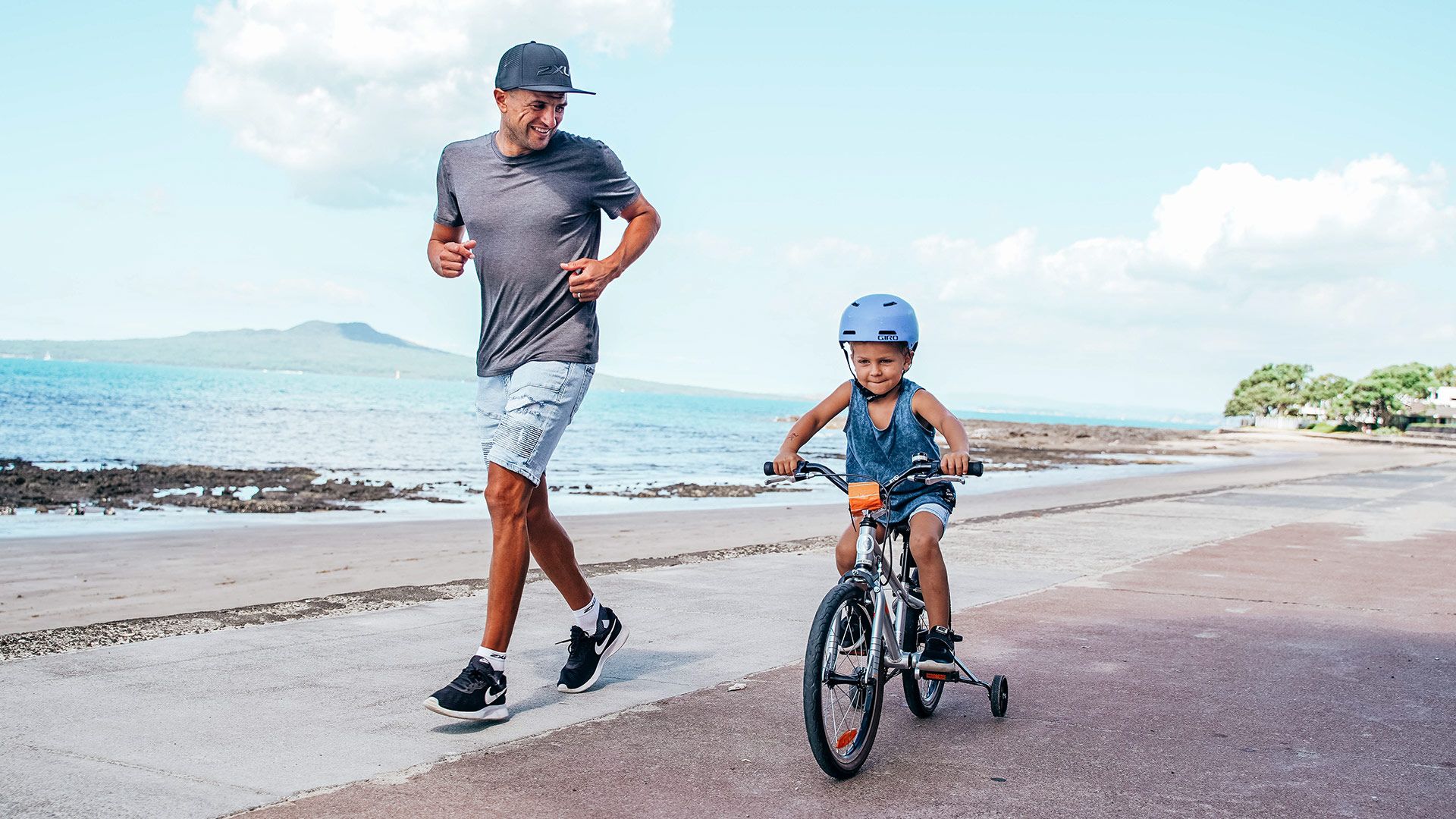
My parents always made sure my brother and I had ample opportunities in sport, but they also made sure academics came first to ensure we had options. We all know how cruel sport can be, and thankfully I’ve had a relatively good run.
This is a bit of a story. Growing up I played tennis, soccer, cricket, athletics, karate and swimming. There wasn’t much time to get into any trouble!
As a thirteen-year-old, I was mainly swimming competitively. That year, during the summer holidays, I tried to do a flip while wakeboarding and landed on my head. I burst my ear drum, and unfortunately, it didn’t heal as it should have.
After the first seven-hour operation, I was forced out of the water for a while. I couldn’t just do nothing, so I found a duathlon, borrowed a bike and had a go. I didn’t win the race, but I loved it. When I was allowed back in the water, I started doing triathlons and have been hooked since.
“I couldn’t just do nothing, so I found a duathlon, borrowed a bike and had a go. I didn’t win the race, but I loved it.”

2019 was a very tough year for me. After recovering from my near-fatal bike accident in 2018, my numbers in training were better than ever. However, I was unable to find any momentum in racing in the early season. Then, I was plagued by an Achilles injury for the second half of the season.
That being said, my recovery has been great, and I have never been so excited and driven to get back to racing at the top of my game. My big goal for 2020 is to get on the podium in Kona at the Ironman World Championships. On the way through, I would like to race the new Collins Cup and get back on the top of a few Half Ironman and Full Ironman podiums.
[Laughs] – there was a lot of soul searching in 2019. I live to race, and race well. I was thankful to have my family to keep life in perspective, and I was grateful for the experience knowing that I could come out the other side.
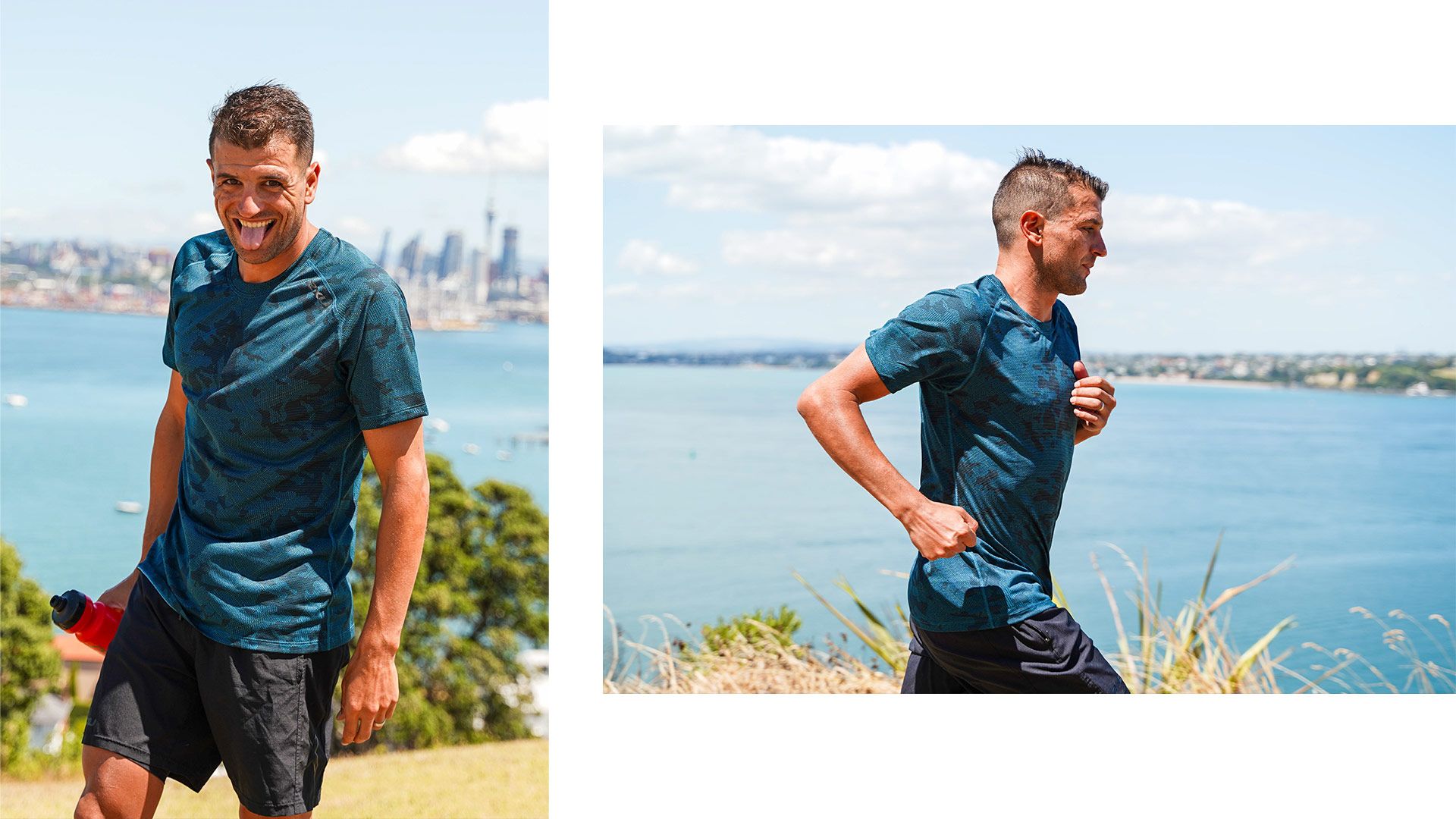
Sometimes it feels like I can’t seem to catch a break. But I thank my lucky stars each day for how blessed I am. I have an amazing family; I have had a great career and I know the best is yet to come. Plus, I have some amazing sponsors who have stuck by me when things were not rainbows and butterflies.
Through both the recovery from the accident and my Achilles injury, it’s been important to have goals each day and each week that keep me motivated. Working towards these smaller finish lines helps me feed my everlasting passion for achieving my goals.
“Through both the recovery from the accident and my Achilles injury, it’s been important to have goals each day and each week that keep me motivated.”
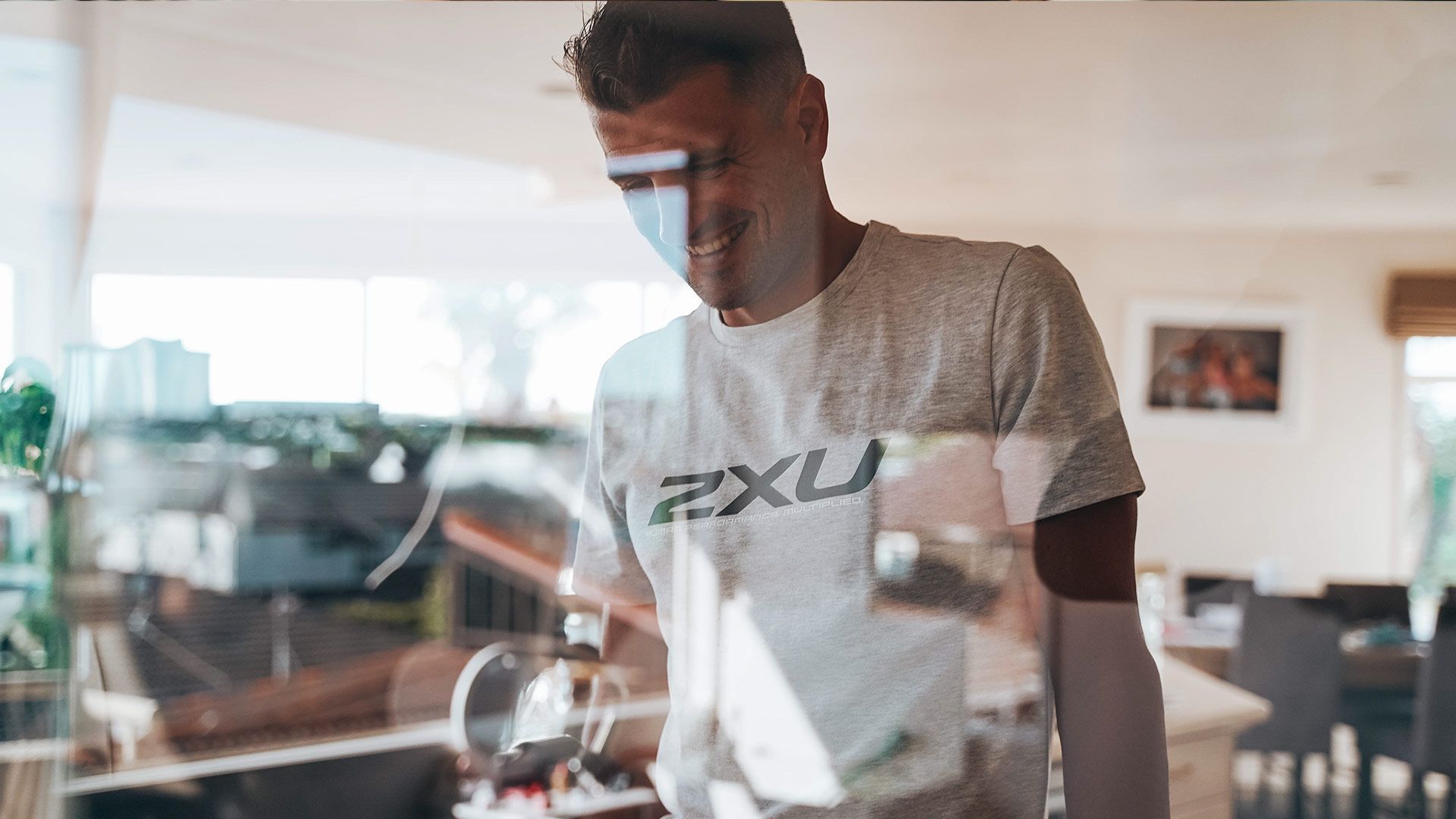
It feels we blink and five years goes past – I am a little older than you might think! My first World Championship race was the Junior Duathlon Worlds in Calais, France in 2000. How the sport has changed since then.
I made the shift to long course racing in 2008 after missing out on Olympic selection. I was fortunate to be in a position to watch the 70.3/Half Ironman scene grow from nothing to seeing athletes able to sustain a career purely racing the half distance.
The racing has also gotten so much faster. In the early days, a half was a good tempo workout. Today, we are racing halves at the same intensity that we were racing Olympic distance races, and if you are not going under 8 hours for an Ironman, you are unlikely to be on the top of the podium.
Every year I am tweaking my training to ensure a continued improvement, and with Olympic medallists such as Jan Frodeno and Alistair Brownlee stepping up, there is no space to operate at a sub-optimal level. Our whole life is considered and there is such a huge level of importance placed on recovery.
“The racing has gotten so much faster. In the early days, a half was a good tempo workout. Today, we are racing halves at the same intensity that we were racing Olympic distance races.”
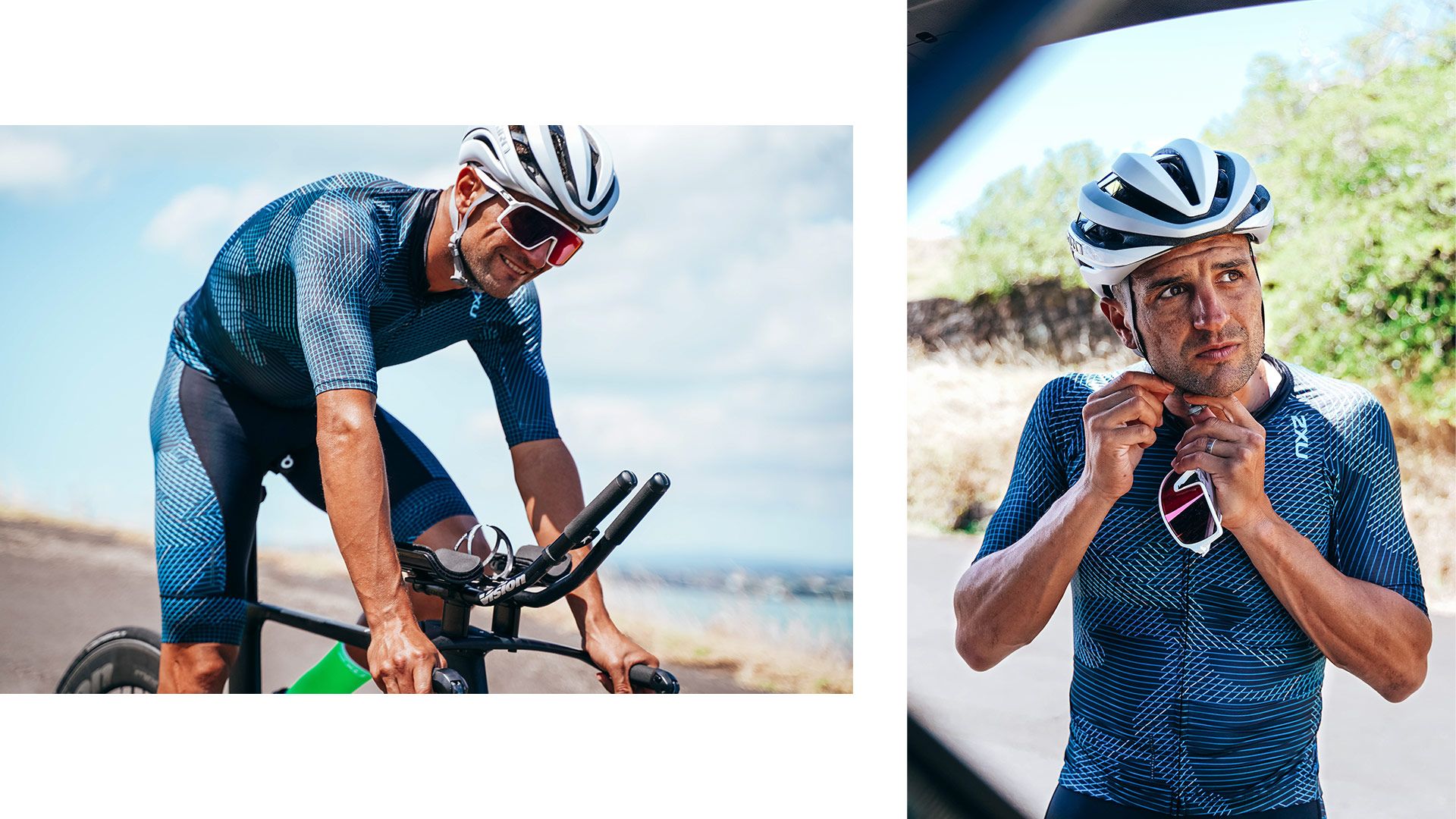
Before kids, I would have been on the road six or seven months a year. Today, I manage to limit my time out of New Zealand to about five months. The family travel well, but when I go into camp it’s easier to have an intense focus for a short period of time with no distractions. When I am racing, it does need to be all about me, so about half my time overseas I am away from my family.
Yes, my family is my everything. As I evolve, I realize that it doesn’t matter if I win or not – my kids have no idea and they will still love me.
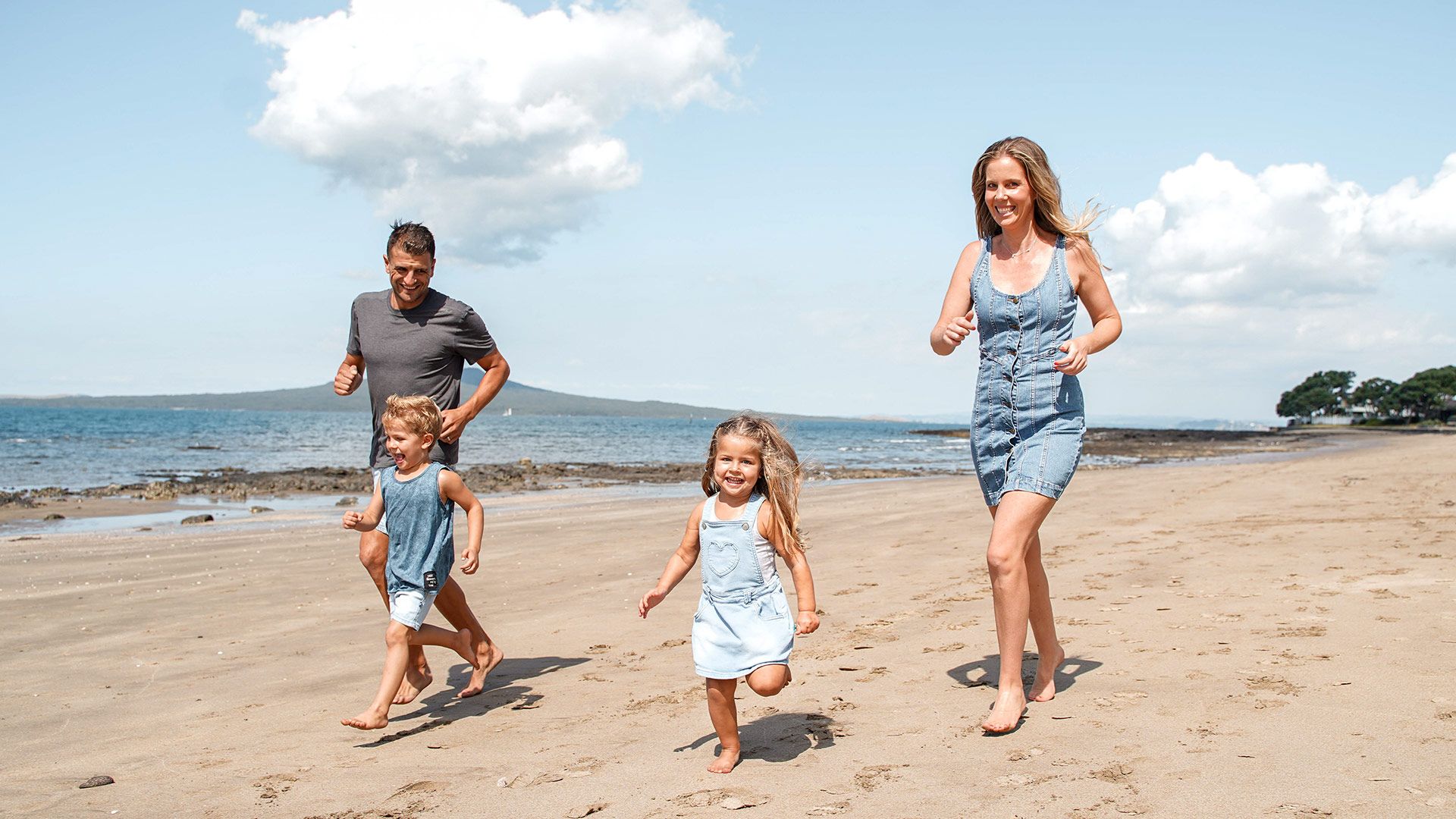
A big driver in coming back from the adversity of the past few years is to tell my kids this story when they are older. I want them to see that hard work and perseverance pays off. Having goals and working with all your might to achieve them is a great feeling, and it allows the sky to be the limit of what you can do.
Triathlon has taught me so much through my life and the lessons I have learnt along the way have moulded me into the person I am today. I am eternally grateful for my opportunities.
“A big driver in coming back from the adversity of the past few years is to tell my kids this story when they are older. Having goals and working with all of your might to achieve them is a great feeling.”
At every Ironman event, I’m blown away by the number of people who have the bug and how passionate they are about triathlon. The great thing about the sport is it doesn’t matter your ability. There are so many different distances and having a goal, working towards it and achieving your finish line gives such a great sense of accomplishment.
I remember my first Ironman clearly – when I got to the finish line, I had goose bumps down my back. It made me realize that if a person could work through the mental battles an Ironman presents, you can work through anything in your life.
My Finish line for that race was to make it through the race without having to walk. I ended up achieving this and finished second with one of the fastest Ironman debut times.
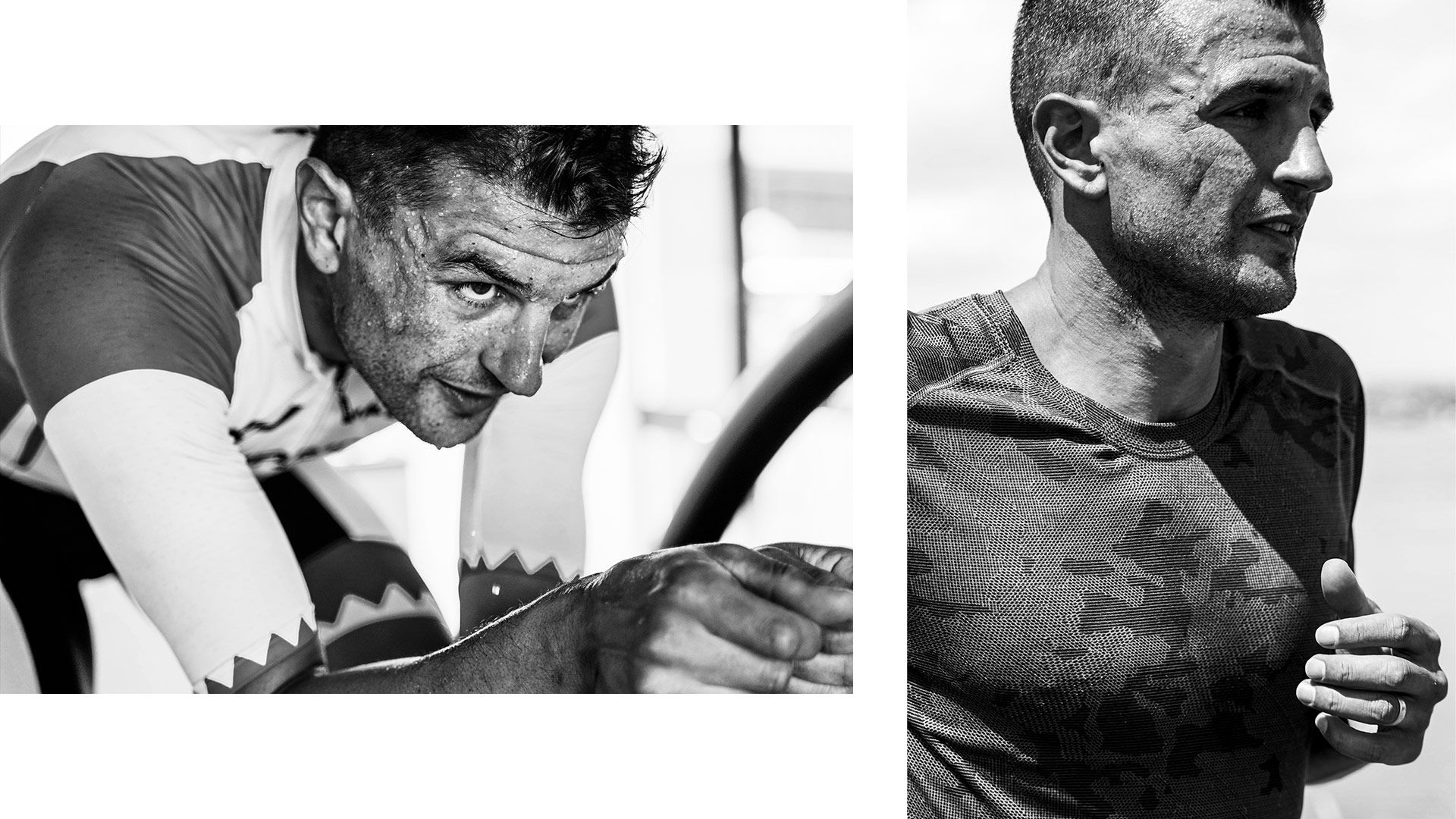
“The great thing about the sport is it doesn’t matter your ability. There are so many different distances and having a goal, working towards it and achieving your finish line gives such a great sense of accomplishment.”
The best piece of advice I can give still stands for me today – get out there and have fun! Being in a group makes the journey that much more enjoyable as you can share it with like-minded people. Nothing beats the feeling of finishing a big workout and achieving your finish line for that day.